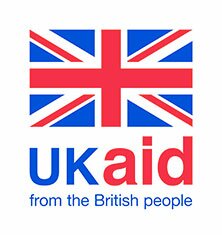We have just published a report looking at the experiences and challenges of scaling up the response in the first three months of COVID-19 in Bangladesh, Kenya, Pakistan, Sierra Leone and Uganda. In this blog, Debbie Hillier focuses on some of the early lessons on governance.
A huge governance challenge
COVID-19 presents major governance challenges. First, it requires a ‘whole of government’ approach – with joint activities and coherent decision-making across diverse ministries, public administrations, and agencies. Second, it requires a ‘whole of society’ response, where multiple levels of government work with the private sector, NGOs, and civil society in collaborative governance. Third, plans – and the teams put in place to deliver them – need to be adaptable due to uncertainty, imperfect information, and unclear scientific evidence.
This is a high bar, and it provides a highly complex challenge for all governments.
Governance experiences in the Maintains countries
For the Maintains countries, a range of governance challenges have emerged: for some this has been decentralisation; others have not had the benefit of pre-existing public health policies and preparedness; some have squandered community trust; and all have struggled with multi-layered coordination.
The report goes into detail, but I will highlight five key issues here:
-
Crisis management is tricky in highly decentralized governance systems. In Kenya, the Council of Governors, representing county governments, channelled county requests to the national government with limited success. To improve collaboration, a meeting of the national and county governments was convened by the President on 11 June. In Pakistan, health is a provincial matter, with response committees initially constituted at provincial levels. However, after a surge of cases, the National Disaster Management Agency was designated as the operational lead. Since then, provincial governments have complained about being hampered in terms of making timely decisions, and about approaches not always being supported by the federal government (e.g. the desire of provinces such as Sindh to implement a tough lockdown), which has sometimes led to open disagreement.
-
The impact of this pandemic is experienced in highly differentiated ways, requiring diversity in leadership. However, leadership of women across the response is low – in Kenya, Pakistan, and Uganda women make up 29%, 8%, and 22.5% of key response committees, respectively, with men often holding the most influential positions. These committees are less likely to consider women’s and men’s different experiences when shaping responses, which is expected to deepen gender inequality.
-
Public health legislation is necessary but is often missing. Actions such as surveillance, quarantine, curfews, import of medical supplies and personnel etc. are effected through, or subject to, national laws. Yet only Bangladesh and Kenya have up-to-date public health legislation. The national public health law in Pakistan is the short and outdated Epidemic Diseases Act 1958; provinces have their own infectious disease ordinances but these do not appear to be adequate and all provinces have used their disaster management legal frameworks instead. Sierra Leone’s public health legislation dates back to 1960 and Uganda’s to 1935 – both updating, although it is recognised that Uganda’s is reasonably functional.
-
Building strong partnerships is key and all governments have been working with donors, the private sector, and other organisations to achieve their goals. This has worked better in some cases than others. In Kenya, engagement from donors and partner agencies was initially strong, but declined substantially in mid-February, when a reshuffle took place that resulted in the creation of the centralised National Emergency Response Committee, whose deliberations were only open to top government officials.
And whilst countries have recognised the crucial role of civil society in communicating epidemic risks and achieving behaviour change, its potential is not yet being fully realised, particularly that of women’s rights organisations. In Bangladesh’s Cox’s Bazar District, women’s networks and self-organised groups have led community outreach and awareness-raising sessions, yet women’s rights organisations report being left out of local and national consultations on the COVID-19 response.
In most countries, religious leaders have played a highly positive role – providing services over the radio in Uganda, disseminating COVID-19 information in Bangladesh, and in Kenya shutting Nairobi’s biggest mosque during Ramadan (the first time it has been shut in its 95-year history). In contrast, in Pakistan, on 14 April, an alliance of religious leaders declared that they were unilaterally re-opening mosques for congregational prayers, in defiance of government lockdown orders, thus creating confusion.
- Finally, institutional trust between communities and government is crucial in pandemics to ensure cooperation and behaviour change; this was a lesson learned the hard way in the 2014 Ebola outbreak. Yet the need to implement a proportionate and accountable response, with public health standing above all other agendas, has not always been realised in the COVID-19 response. There are perceptions that Kenya took an enforcement rather than public health approach to quarantine, that Bangladesh has repressed freedom of speech and protest, and that Uganda has . Similarly, there have been accusations against opposition political parties in Sierra Leone. Further, when curfews were introduced in Kenya and Uganda, their strict and sometimes violent enforcement not only punished transgressors but also collectively reinforced people’s fears of state caprice and coercion. In response to the public outcry in Uganda, the defence forces chief apologised and some personnel have already been convicted. In Kenya, the President apologised but did not instruct the police to end the abuses.
It is clear that there is a lot to do to strengthen the national governance of pandemics. Further analysis is required on how different leadership approaches affect coherency and coordination, and how the informal rules, values, and norms that shape relationships and interactions among actors underpin the speed and effectiveness of an emergency response. The next research output along these lines from Maintains will be a short study exploring the role of traditional leaders in supporting the government’s response in Sierra Leone.
Do read the full report and standalone summary to find out more about this work and the work of Maintains.



